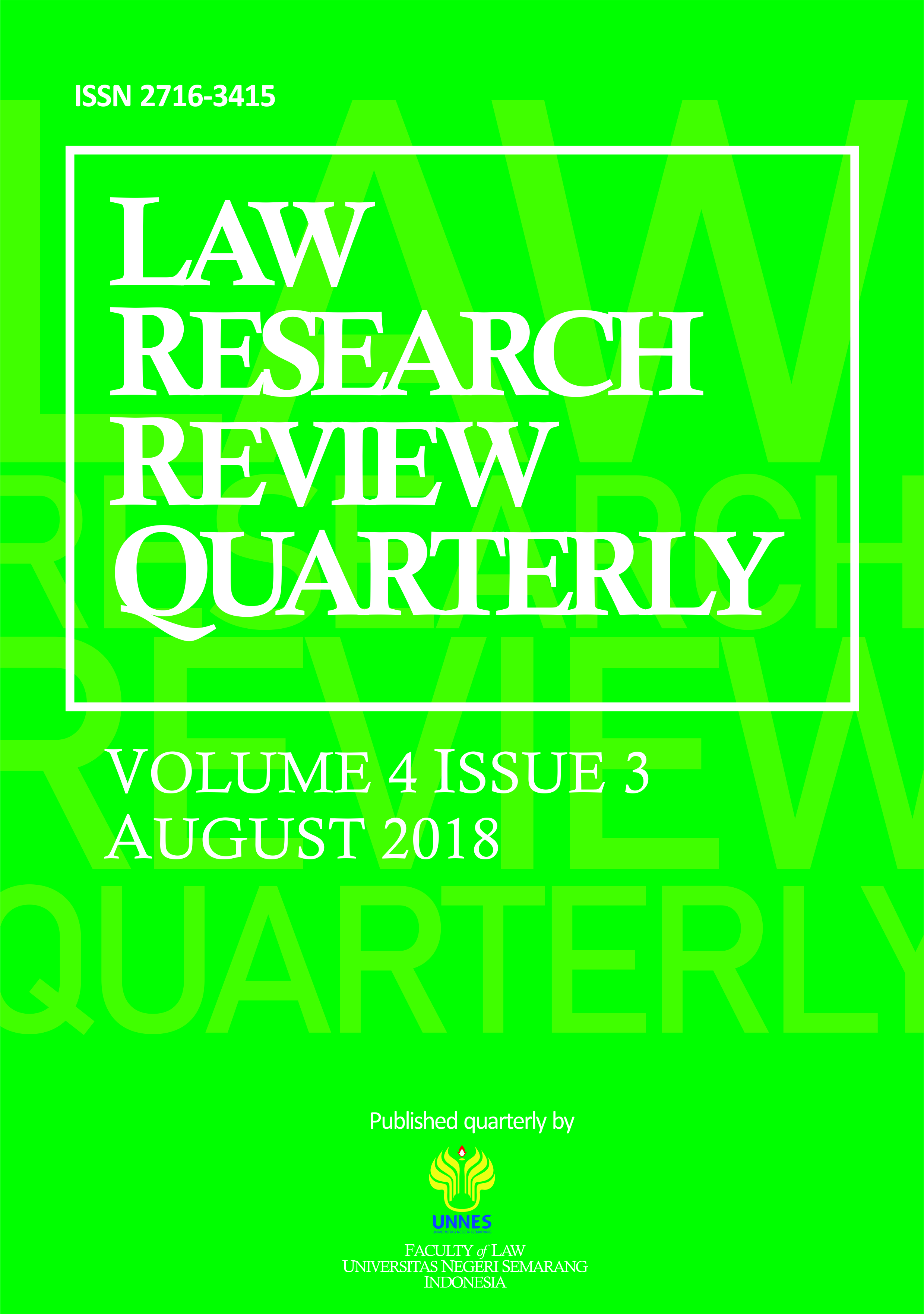Democratic Election of Noken in Papua
Main Article Content
Abstract
The holding of General Elections in some parts of Papua has its own character because its implementation is different from General Elections in general. If all this time we only know that the General Elections are held "Directly, Publicly, Freely, and Secretly", then there are some areas in Papua that still use the General Election with the noken and / or connective system. This is because the culture of the indigenous Papuan people in terms of decision making concerning the common interest is done through a deliberation meeting by involving the community as a whole or certain people ("Men of Authority" or "The Big Man") alone as representatives to make decisions. This was also strengthened by the Constitutional Court's Decision which essentially stated that it did not matter the voting system used by the indigenous Papuans because the essence in the General Election process was that everyone could exercise their voting rights directly, freely, and confidentially. With the implementation of the General Election the noken system and / or the binding system does not provide guarantees and legal certainty to the constitutional rights of the voters to determine for themselves who they think is best based on their rational logic. Honesty does not only mean that no General Election provisions have been violated or that no vote has been manipulated. Honesty must also be interpreted as the system which best enables the people to elect candidates according to conscientious considerations based on the candidate's capacity and integrity.
Article Details
All writings published in this journal are personal views of the authors and do not represent the views of this journal and the author's affiliated institutions. Author(s) are retain the copyrights of the Article. However, before publishing, it is required to obtain written confirmation from Author(s) in order to ensure the originality (Author Statement of Originality). The statement is to be signed by at least one of the authors who have obtained the assent of the co-author(s) where applicable.This work licensed under a Creative Commons Attribution-ShareAlike 4.0 International (CC BY-SA 4.0)
References
Armada Riyanto, Johanis Ohoitimur, C.B. Mulyatno, Otto Gusti Madung. (2015). Kearifan Lokal Pancasila Butir-Butir Filsafat Keindonesiaan, PT Kanisius: Yogyakarta.
A. Appadorai (1974). The Substance of Politic. New Delhi: Oxford India Paperback.
David Easton (1965). A system Analysis of Political Life, New York: John Wiley and Sons.
Deliar Noer (1982). Pengantar Ke Pemikiran Politik Edisi Baru. Jakarta: CV. Rajawali.
Dr. H. Amin Ibrahim, Drs, MA (2013). Dinamika Politik Lokal Konsep Dasar dan Implementasinya. Bandung: Mandar Maju.
Fred. R.Von Der Mehden (1987). Politik Negara-Negara Berkembang. Jakarta: PT. Bina Aksara.
Hans P. Tan (2013). Nyalakan Pancasila Selamatkan Pluralisme. Jakarta: STT Gratia Jakarta.
Harold D. Laswell dan Abraham Kaplan (1950). Power and Society, New Haven: Yale University Press.
Janedjri M. Gaffar (2012). Politik Hukum Pemilu. Jakarta: Konstitusi Press.
J. Kristiadi (1997). Menyelenggarakan Pemilu yang Bersifat Luber dan Jurdil. Jakarta: Centre For Strategic and International Studies (CSIS).
Kholilullah Pasaribu (2016), Noken dan Konflik Pemilu Laporan Awal Pilkada Serentak di Papua, Jakarta Selatan: Perkumpulan untuk Pemiu dan Demokrasi (Perludem).
Kholilullah Pasaribu (2016), Noken dan Konflik Pemilu, Jakarta: Perkumpulan untuk Pemilu dan Demokrasi.
Miriam Budihardjo (1983). Aneka Pemikiran Tentang Kuasa dan Wibawa. Jakarta: Sinar Harapan.
Miriam Budihardjo (2008). Dasar-Dasar Ilmu Politik. Jakarta: PT. Gramedia Pustaka Utama.
Moh. Mahfud MD (1999). Hukum dan Pilar-Pilar Demokrasi. Yogyakarta: Gama Media.
Ramlan Surbakti (1992). Memahami Ilmu Politik. PT. Grasindo: Jakarta.
Suzanne Keller ( 1995). Penguasa dan Kelompok Elit Peranan Elit Penentu dalam Masyarakat Modern. Jakarta: PT. Raja Grafindo Persada.
Putusan Pengadilan
Putusan Mahkamah Konstitusi Nomor 06-32/PHPU-DPD/XII/2014 dibacakan pada tanggal 25 Juni 2014.
Putusan Mahkamah Konstitusi Nomor 31/PUU-XII/2014, tanggal 11 Maret 2015.
